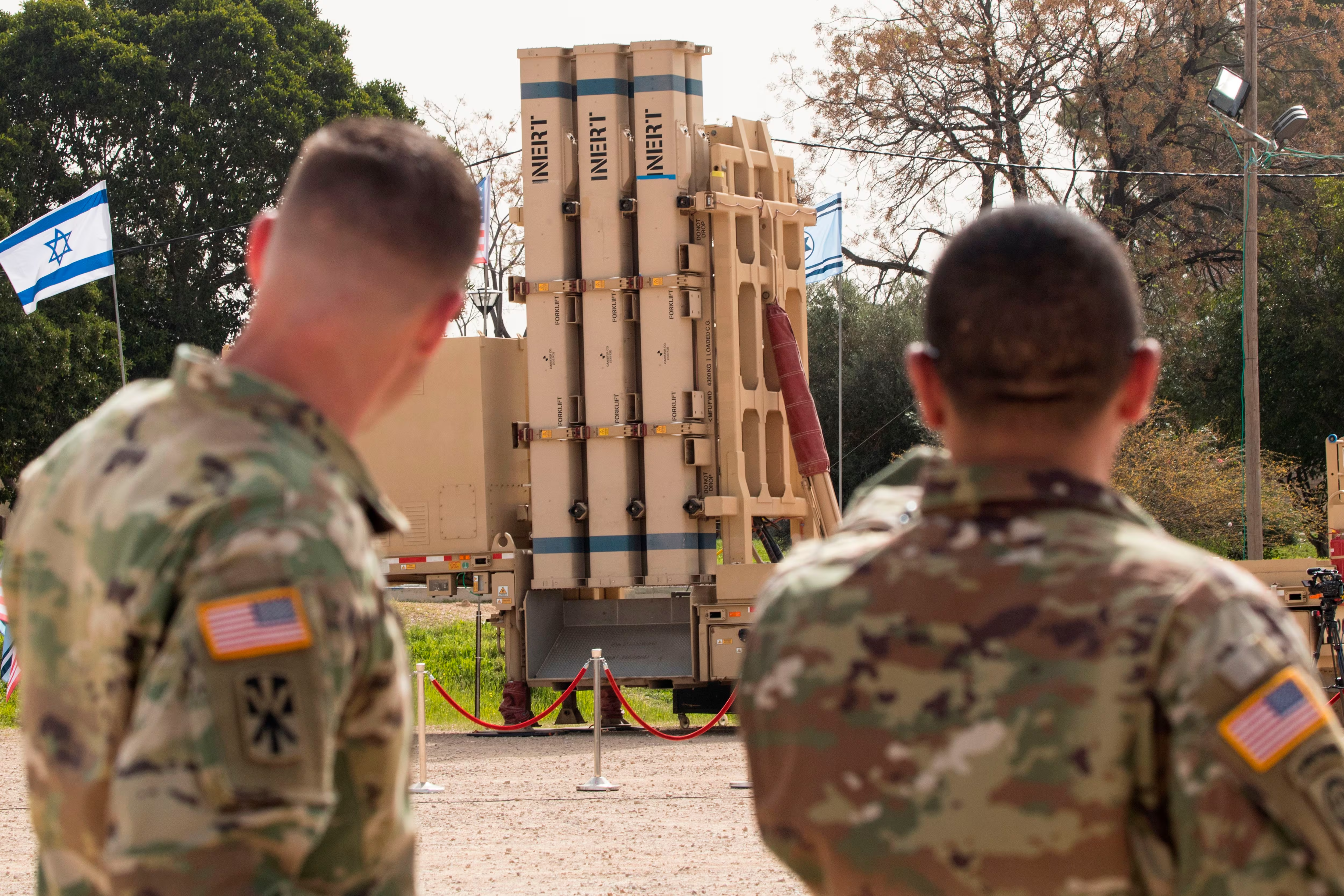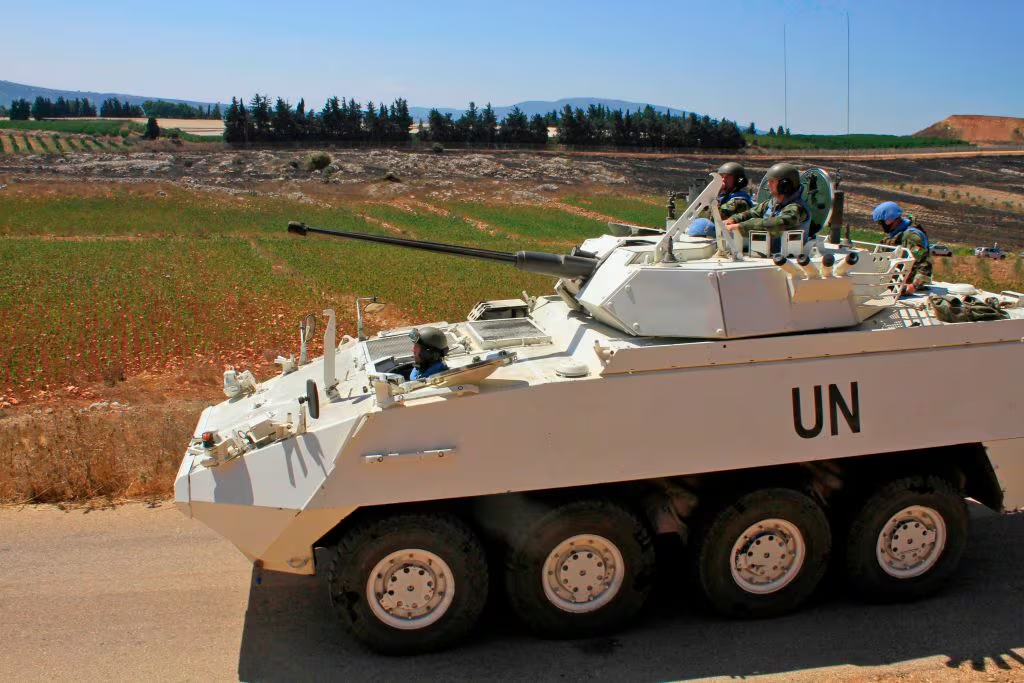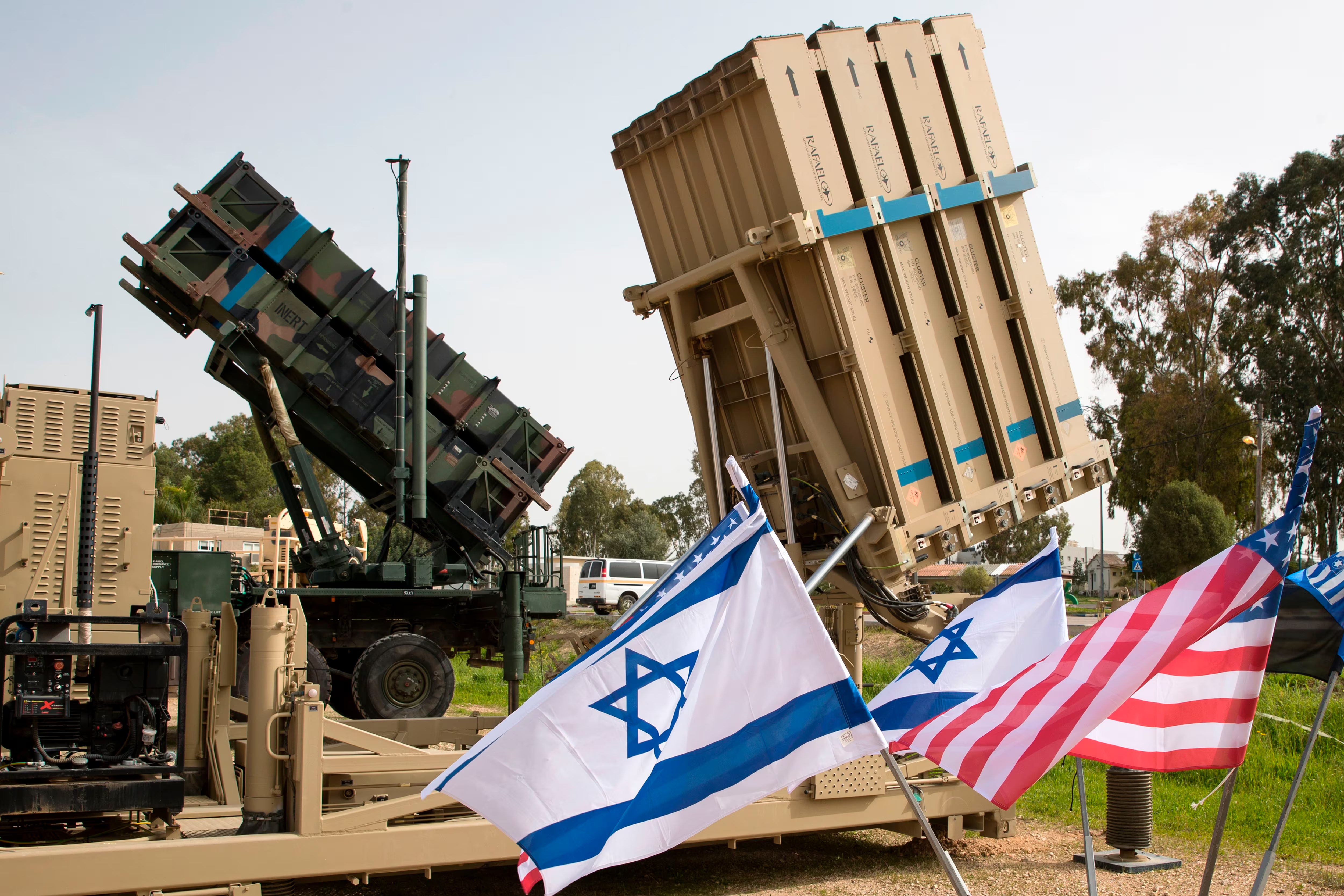JERUSALEM — In the first months of 2020, Israel found itself simultaneously facing several crises. With borders closing amid the COVID-19 pandemic as well as a rising Iranian threat along Israel’s border, the Israel Defense Forces’ International Cooperation Division is playing a central role in building relations with the United States, NATO and neighboring states friendly to the country.
As head of that division, Brig. Gen. Effie Defrin has a unique view of how Israel’s “military diplomacy” is useful during a pandemic, in building trans-Atlantic relationships and for countering threats along the border. In a May 20 interview with Defense News, the 48-year-old officer discussed how the IDF is trying to maintain operational readiness, procure medical equipment abroad and preserve foreign relations, all while avoiding the spread of the novel coronavirus.
What is your role in the IDF?
I am responsible for international cooperation of the military, everything connected to it. I have two branches. One deals with our neighbors, the peace borders with Jordan and Egypt and the confrontation borders with Lebanon and Syria and international organizations, such as the United Nations Interim Force in Lebanon, the United Nations Disengagement Observer Force in Lebanon and Syria, and the Multinational Force and Observers in Sinai, which since 1979 helps relations and the peace treaty with Egypt.
Our second branch is international cooperation. We have all the Israeli defense attachés around the world, dozens of mainly colonels and one ranking general in the U.S. One of our branches is responsible for communications with them, day to day, and to help them do their job. Through them we provide our point of view [to foreign countries].
You’ve described your role as “military diplomacy.” What does that entail?
For the IDF, while every country does it differently, it is according to every state’s interests and needs, and in Israel we matured in the last decades to understand our role. Historically we are surrounded. We have historic awareness of being persecuted around the world; my father came from Romania after the Holocaust after his family was killed by Nazis, and my mother came from Morocco. We inherited the culture of surviving and being surrounded and the need for initiative and being creative, and going to sleep with one eye open and protecting oneself.
Military diplomacy runs counter to Israeli cultural thinking, our self-sufficiency, not relying on others, having own water desalination and tank factories, producing everything by yourself with one or two allies. The U.S. is our main ally, part of the family, like a big brother, and relations should be bipartisan.
After 72 years of independence and flourishing, in the last decades we opened ourselves to the external world and we are learning and sharing from other countries and sharing our experience. Every decade we have frictions with neighbors, and we advanced a lot. We have a good image as a military abroad due to our capabilities and technological capabilities. We try to share our experience with friendly countries. [For instance, the U.S. conflicts in] Afghanistan and Iraq, we learn from others’ experiences there and we try to utilize our relations to our benefit.
It is about gaining knowledge and explaining our point of view. We send abroad Israeli colonels who were educated here, and they spread our message around the world. We work with our diplomats from the Ministry of Foreign Affairs and National Security Council; while wearing a uniform we are considered more straight-forward, which allows me to meet my peers, including countries we don’t have relations with. [During times I was posted abroad] I met only a few [foreign officers] who didn’t want to speak with me.
Describe the coronavirus crisis in the first months of 2020.
I began my duties in November. [I initially dealt] with the United Nations Interim Force in Lebanon (UNIFIL), the Multinational Force and Observers in Sinai, with Jordan relations, and relations with other countries, such as the U.S.. By January we had the issue of COVID-19. That was a new issue, and we needed new tools. We found out that the military way of thinking was very beneficial to fight the virus and support civilian authorities.

In the last few months, the central issue was recognizing the problem and using the international cooperation unit. We recognized [the virus threat] because we have defense attachés around the world, our representative in China and other places. I was speaking with our defense attachés everyday, even though it looked far from our borders initially. I couldn’t imagine that by March we would be isolated.
As a military culture, we began to think about solutions. We thought about maintaining operational readiness. We learned early that this virus is spreading exponentially and if you don’t take fast measures it will spread around the military and will damage operational readiness. So we did many initiatives: We isolated those on naval ships and pilots. We called each unit “capsules.” We locked units for four to six weeks at bases. It was a logistic challenge. The life of soldiers is sacred to us. We maintained 100 percent readiness. We predict and we are preparing for a second wave. We are listening to health experts around the world. We learn a lot from the experience of other militaries.
We have sought to learn from defense attachés or our chief of staff or chief surgeon, speaking directly, teaching and learning from others. We follow it now in Brazil and South America, seeking to help them.
How did you manage cooperation with the U.S. and its European Command during this period?
We have tight relations with EUCOM and an annual training usually around Passover in spring. This year, the week [the drill Juniper Cobra] began, the COVID-19 issues in Italy began and we had to utilize the drill because a lot was invested. The Juniper Cobra exercise [continued]. We did evacuate some American soldiers from here, [but] we utilized this drill as much as possible. It was great.
In terms of exchanging knowledge, the chief surgeon [held discussions] with Jordan, Europe and the U.S. We did some video conferences, including with NATO headquarters at the medical corps level. We were one of the first to deal with this issue effectively; we shared information based on our experience. There was no drill for the pandemic.
We found that the links and networks that we developed over the years became effective during the coronavirus crises because countries close themselves off. Using these networks and links that we have around the world helped us a lot bypassing bureaucracies as well as procuring medical equipment and ventilators. We collaborated a lot with different organizations such as our Ministry of Health, Mossad and military intelligence, and the Ministry of Foreign Affairs at a command center at Tel HaShomer [near Tel Aviv] in this international effort and brought experience from abroad.
We provided medical support to international organizations, such as U.N. forces in Lebanon. We helped with COVID-19 tests; it was hard to get the tests to the United Nations Disengagement Observer Force, or UNDOF, on the border. We need them due to the deconfliction [with Syria].
Also, with Egypt and the Multinational Force and Observers, or MFO, we do a lot of work with the Egyptians [to maintain] good relations. We try to inspect the border together and prevent friction. With Jordan, we shared information at the medical corps level. It was very exciting, and I’m happy we have this level of cooperation. I wish it was like that with the Lebanese and Syrians. We have a trilateral meeting with the Lebanese with UNIFIL, Italian representatives, four to five Israelis and four to five Lebanese officers. We meet every five to six weeks. We had some friction with Hezbollah on April 17 — they cut the fence. It was alarming, and the way to prevent friction is these talks via UNIFIL. The main issue is to prevent friction and war. I try to prevent that.

How about relations with NATO and other countries?
We had 24 medical officers and chief surgeons of 24 countries talk with our chief surgeon in a meeting, and we spoke with the European Union. We shared information, and they were eager to listen to their Israeli counterparts. We did it because there was supposed to be a NATO medical conference in Lebanon in March and it was canceled, so we initiated this video conference.
[We also learned from] Italy, which had a difficult experience with the coronavirus. We had talks with our emergency doctors learning from counterparts on isolating cities and areas.
Also, with South Korea we learned a lot. Our defense attaché in South Korea was very helpful regarding reagents, gowns, mask [supplies] and learning about testing. A lot of shortages were overcome. You cannot do things alone; you must cooperate. We also had good cooperation with Germany, with their Air Force and Navy, including contact through talks. We also communicated with Mexico on the import of medical equipment.
The main issue is to emphasize cooperation and collaboration without an ego in the room. This involved cooperation with special forces, intelligence, medical cooperation and our [defense forces].
But this is not the end of it. We try to understand and predict.
So at the same time, Israel faced threats?
Looking around us, we can see that actions taken by enemies and foes, such as Iranian entrenchment around us in the north and south, it still goes on these days, [they are transferring] precision guidance for missiles. In the Golan and Lebanon, Hezbollah is building precision guidance and entrenchment in Syria and influence there. We didn’t have the opportunity to stop our readiness and go backward and relax; we couldn’t afford to do that. While thousands of Iranians died from COVID-19, we saw their efforts moving forward, not being reduced. So we had to protect ourselves and maintain readiness; we put a lot of effort into that.
[Security threats include] Lebanon, Syria, Islamic jihad in Gaza and Hamas. [They are] supported by Iran with money and knowledge. We are putting efforts in maintaining readiness. We want to change ourselves and look into the future — into the next four to five years and next-generation [technology]. We want to balance between readiness and change, using digitization.
Touch on the challenges and ramifications related to COVID-19.
It did push us as a military. Militaries are traditionally orthodox, we are romantic in how we look at the past. We sought to look at the future and see what challenges our enemies will prepare, to be one step ahead. COVID-19 put us into capsules and enabled us to use technology to train and learn, and it pushed us to improve communications, using new technology, how to do video conferences and logistically how to maintain a unit in the field for up to six weeks.
[Another highlight is] our support to civilian authorities in a democratic country. We needed to react quickly and bypass civilian bureaucracy. We used our intelligence capability, special forces, communications, logistics and transportation.
Is Israel’s experience unique?
Every country’s experience is different, but we are in the military and we are ready for an emergency situation. Because we have lived with emergencies, our situational awareness was an advantage. Despite political turmoil — [Israel had its third election in a year on March 2, 2020] — and other issues, our nature is readiness and awareness to emergencies. It took us one or two weeks, and then the Ministry of Health opened this center in Tel HaShomer, and all the units came.
RELATED

What about upcoming military exercises with partners abroad?
We must analyze the situation. We have annual planning and training and meetings with partners such as the U.S., and [planning for exercises] didn’t stop completely, but some of it was postponed or delayed. We must look at the second half of 2020 and see how will we do it. How do we continue the effort of building our forces for the future? The Navy and Air Force [drills are easier to plan for].
I am responsible for the budget of international travel. We learned you can do this without physical interaction: We have video conferencing, and most activities we continued to do, and we learned how to do it better. We reduced physical interaction and saved money. We have more secure applications and secure communications.
In terms of secure communications, there were recent reports of cyberattacks on Israel. How does that affect things?
It is the future. I don’t know all the details, I can’t elaborate. I am not a cyber expert. It is interesting, it’s a covert conflict. There is a lot of exchange of information on this issue with private companies.
Seth J. Frantzman is the Israel correspondent for Defense News. He has covered conflict in the Mideast since 2010 for different publications. He has experience covering the international coalition against the Islamic State group in Iraq and Syria, and he is a co-founder and executive director of the Middle East Center for Reporting and Analysis.








